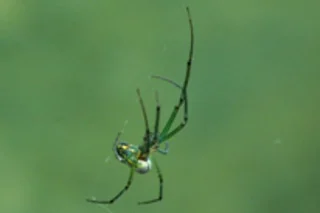Scientists have managed to make extra-strength spider silk—already notable for having a tensile strength higher than many alloys of steel, even though its comprised entirely of proteins [Ars Technica]—by incorporating small amounts of metal into it. A research team at the Max Planck Institute was inspired by studies showing traces of metals in the toughest parts of some insect body parts. The jaws of leaf-cutter ants and locusts, for example, both contain high levels of zinc, making them particularly stiff and hard [Reuters]. The researchers wanted to try adding metals into existing biological materials, and decided to start with the Araneusspider. The researchers, whose work is published inScience, used atomic-layer deposition to pulse zinc, titanium, and aluminum ions into spider silk [Technology Review]. The process is used normally to apply a thin film layer of one material onto another, but the researchers found that the metal ions had actually penetrated ...
Metal Injections Make A Spider Silk that Spiderman Would Envy
Discover how scientists created extra-strength spider silk that's tougher than steel using metal ions, revolutionizing high-tech materials.
More on Discover
Stay Curious
SubscribeTo The Magazine
Save up to 40% off the cover price when you subscribe to Discover magazine.
Subscribe













